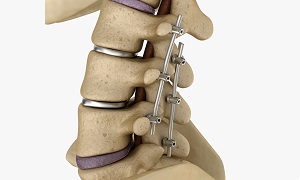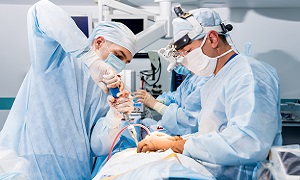Best Doctors in India for Corpectomy / Vertebrectomy
Best Hospitals in India for Corpectomy / Vertebrectomy
- City: Bengaluru, India
Hospital Highlights:
- Fortis Hospital Bannerghatta, Bengaluru was established in 2006.
- The hospital is a 276 bedded multi-specialty tertiary care facility.
- The hospital specializes in cutting-edge medical technology and dedicated patient care services.
- The hospital is equipped with state-of-the-art technologies like trans-radial angioplasty, trans-abdominal cardiac surgery, and computerized TKR navigation surgery.
- The hospital provides specialty medical services in cardiology, cardiac surgery, orthopedics, neurology, neuro-surgery, GI, and Minimal Access Surgery (MAS).
- City: Chennai, India
Hospital Highlights:
- Fortis Malar was established in 1992 and was formerly known as Malar Hospital.
- The hospital specializes in cutting-edge medical technology and dedicated patient care services.
- The hospital is multi-specialty, tertiary care facility with 180 beds.
- The hospital offers comprehensive medical care in specialties such as cardiology, cardio-thoracic surgery, neurology, neurosurgery, orthopedics, nephrology, gynecology, gastroenterology, urology, pediatrics, and diabetes.
- City: New Delhi, India
Hospital Highlights:
- Established in 1996, Pushpawati Singhania Research Institute is one of the top hospitals in the NCR region, as well as one of the top facilities in India for gastroenterology. The hospital is one of South Asia’s first institutes in medical and surgical treatment for diseases related to digestion.
- The hospital is equipped with state-of-the art facilities coupled with the latest equipment as well as renowned consultants from various parts of India as well as other parts of the world.
- City: New Delhi, India
Hospital Highlights:
- State-of-the-art technology and devoted healthcare professionals have been brought together under one roof at Venkateshwar Hospital to provide genuine medical care. The hospital’s professionals work together as a team to deliver the best possible treatment to their patients, using the most sophisticated equipment and information technology.
- Venkateshwar Hospital’s mission is to attain global excellence in healthcare by employing evidence-based, ethical clinical practices and cutting-edge technology by a team of highly skilled experts.
- City: New Delhi, India
Hospital Highlights:
- Sir Ganga Ram Hospital, New Delhi is known to provide the latest medical procedures with the latest technology in all of its units.
- The hospital has a team of reputed doctors, nurses, and healthcare professionals that ensure that patients receive quality care at affordable costs.
- Staffed with a team of highly qualified doctors, dedicated nurses, and paramedical and non-medical staff, the hospital aims to lead in healthcare delivery, medical education, training, and research.
- As per the vision of the founder, the hospital also provides free treatment to the economically weaker sections of society.
- Sir Ganga Ram Hospital also provides training to young doctors under the Diplomate in National Board(DNB) program. The DNB program at the hospital was started in 1984 and it is known for currently running the maximum number of DNB specialties in the country. It also has the distinction of having the first bone bank in India.
- City: Kerala, India
Hospital Highlights:
- Established in 2019, Apollo Adlux Hospital is the first Apollo Hospital in Kerala and the 73rd hospital owned by Apollo Group in India. With the state’s most advanced, comprehensive healthcare infrastructure and cutting-edge technologies, Apollo Adlux Hospital stands as an example of medical excellence in Kerala.
- With over 34 multi-specialty departments, the hospital believes in providing the best quality treatment to its patients at affordable rates, ensuring comfort at their difficult times.
- The 300-bed hospital is managed by a team of highly qualified and experienced experts who delivers exceptional hospitality to their patients and treats them with great compassion.
- With its affiliation with the Apollo Hospitals Group, the hospital aims in providing patients with top-notch healthcare services while also serving communities in Kerala.
- The hospital has good railway and road connections, and is conveniently close to Cochin International Airport.
- City: Gurugram, India
Hospital Highlights:
- Situated near DLF Cyber City, Gurugram, Narayana Superspecialty Hospital is one of the top medical facilities in the Delhi NCR region, catering to the needs of the people. Known for its commitment to quality medical care and patient service, the hospital is a state-of-the-art facility with planned and well-equipped sections, which includes a spacious OPD area as well as comfortable patient rooms.
- It is the closest super-specialty hospital from Indira Gandhi International Airport towards Gurugram, and also the nearest super specialty hospital from DLF Cyber City. It is also close to major residential areas in Gurugram.
- It is part of the renowned Narayana Health Group. Established in 2000, by Dr. Devi Shetty, a renowned cardiac surgeon, it has grown to be one fo India’s leading healthcare groups.
- City: Noida, India
Hospital Highlights:
- Fortis Hospital, Noida, stands as one of the oldest and most trusted healthcare institutions in the region, setting a benchmark for comprehensive medical care.
- As the second mega hub hospital in the Fortis Healthcare Group, Fortis Hospital, Noida, upholds a legacy of trust among more than 1.2 million patients. By integrating top-tier professionals with cutting-edge technology, the hospital delivers superior treatment across various medical disciplines.
- Specializing in advanced Neurosciences, Orthopedics, Kidney and Liver Transplant Programmes, Fortis Hospital, Noida has successfully performed over 1,500 transplants, solidifying its reputation as a leader in specialized medical interventions.
Corpectomy
Corpectomy, also known as vertebrectomy, is a surgical procedure. It involves removing all or parts of the vertebral body to decompress the spinal cord and the nerves.
Purpose
Doctors usually recommend a corpectomy for neck or back pain. However, it is not the first option. It is only considered when non-operative measures like physical therapy and medications are not effective. He/she can also recommend it if your spinal cord is at risk of damage, the pain is severe, or you are experiencing numbness and/or weakness, in the arms and legs, or if you are experiencing loss of bladder control, or any difficulty in walking and coordinated movements, due to compression in the spinal cord.
Types
Corpectomy can be classified into various types, depending on its type:
- In a Cervical corpectomy, the damaged vertebrae and intervertebral discs, are removed surgically through the front of the neck.
- Lumar corpectomy, which is performed on the lower back.
- Thoracic corpectomy, which is performed in the chest region.
Preparation
First, your doctor will examine you and determine if surgery is required through tests such as MRI and CT scan. You will need to inform your doctor regarding all medications that you are taking as it is likely that you will need to stop taking some of them prior to your procedure. Overnight fasting might also be recommended by your doctor.
Procedure
Decompression
Depending on your surgeon’s approach, an incision is going to be made on the anterior or posterior. Next, the muscles and tissues are moved aside, in order to reveal the bones of the spinal column. The arteries, nerves, and other structures are also protected from injury.
Your doctor identifies the right disc to be removed, with the help of an X-ray. Next, your surgeon is going to remove both discs above and below the damaged vertebrae, which is followed by the removal of the damaged vertebrae, all the way back to the decompression. This decompression helps to relieve pressure on the spinal cord and nerves.
If any bone spurs are found sticking off the back of the vertebrae, they are removed as well.
Spinal Fusion
After the procedure
Shortly after the surgery is over, you are going to wake up in a recovery room. Then, the tube down your windpipe is going to be removed. Your vitals will be monitored for an hour or two before you are shifted to your room or ward. You will need to stay in the hospital for some days, till you are able to recover fully. IV lines are going to be used for fluids and drugs, till you are able to eat again normally. A physical therapist will be helping you with an exercise routine so that you can recover faster.
Risks & complications
Certain complications are possible with a corpectomy. Sometimes, the operation can fail to relieve symptoms, and pain might even increase after the procedure. Infections may also occur, though they occur in less than 1 percent of spinal surgeries. The patient can also experience hip pain, excessive bleeding, difficulty in breathing or eating, or pseudoarthrosis.
In some cases, hardware fracture is also a possibility, if the hardware used in the procedure breaks before the surgery site is completely healed. It can also result in broken or loosened plates and screws.











